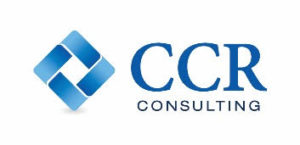
In this month’s edition of Meet The Need NC eNews:
- Message from LAND, the Backbone of Meet The Need NC
- August Lunch & Learn Wrap Up: I/DD and Health Disparities
- Family Partners Needed!
- Register for the September’s HEAR. SHARE. Act. Lunch & Learn
- LENS: Lived Experience Network Speaks Blog
- Policy Update
- Did you know? Information you can use!
- Event Announcement: I/DD Summit for Families
- Ask your legislators to take a survey by September 15!
- Stay in touch with us!
Message from LAND, the Backbone of Meet the Need NC
Transforming the I/DD LANDscape in North Carolina
Disparities, Equity, and Inclusion. These are words woven quite visibly throughout our society today. They are not exclusive to the intellectual or developmental disability (I/DD) community. It is, although, important to view these terms through an I/DD lens when we are attempting to identify gaps in care for our children and adults with I/DD.
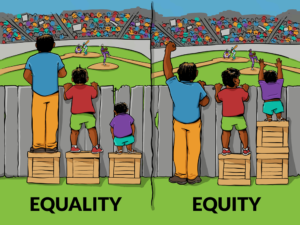
Health disparities are closely linked with social, economic, and/or environmental disadvantages. Health equity occurs when everyone has a fair opportunity to attain their highest level of health. Achieving health requires ongoing societal efforts to confront inequities caused by historical and contemporary injustices, economic status, and other obstacles to health and health care. As a whole, people with I/DD are known to strive for health equity inclusion in general, but research shows us that inequities are even more prevalent for those with racial/cultural/economic disparities and I/DD.
Community Inclusion is a key concept as we look to naturally include those with I/DD and their families in our communities. Social Determinants of Health (SDOH) are factors that affect people’s health, well-being, and quality of life. Examples of SDOH include education and job opportunities, safe housing, transportation, nutritious food access, and physical/social activities.
We will look at disparities for SDOH in the coming months, but now we are focusing on the importance of equal access to services and supports for the I/DD Community in North Carolina.
Please join us for our next monthly webinar on September 19th. The topic is Help Wanted: The I/DD Workforce Crisis – Part 1. Pat Porter, PhD will be our speaker, providing a historical overview of the I/DD workforce crisis and taking a deep dive into the current DSP workforce crisis which is key to meeting the service and support needs of the I/DD community and making community living a true choice. Porter is the former Chief of Developmental Disability Services and Senior Policy Advisor to the NC General Assembly. She currently serves as Advisor to the NC Innovations DSP Workgroup.
Meet The Need NC is an initiative to change the intellectual and other developmental disabilities (I/DD) landscape across the state and is funded by the North Carolina Council on Developmental Disabilities. Meet The Need NC is driven by the Leadership Alliance for Neurodevelopmental Disabilities (LAND), a program of the 501c3 nonprofit, Mental Health Transformation Alliance (MHTA). Learn more about LAND at https://mentalhealthtransformationalli.godaddysites.com/land.
August HEAR. SHARE. ACT. Lunch & Learn Recap
Topic: I/DD and Health Disparities
On August 15, 2023, the topic of the Meet The Need HEAR. SHARE. ACT. Lunch & Learn webinar series was I/DD and Health Disparities. Many thanks to our amazing speakers and dedicated I/DD advocates, Gary Maslow, MD, and Michelle Franklin, PhD, APRN from the Duke University School of Medicine Department and the Duke-Margolis Center for Health Policy.
The data they presented showed us a close-up view of health disparities and inequities in North Carolina’s healthcare system They shared research data regarding the racial and ethnic background, the age make up of individuals on the Innovations Waiver and those not receiving the Innovations Waiver which includes those on its waitlist called the Registry of Unmet Needs. Overarching themes included:
- Those receiving the Innovations Waiver were disproportionally Non-Black/Non-Hispanic.
- People from historically marginalized communities or rural areas are less likely to receive the Innovations Waiver.
- Adults compared to children were also overrepresented on the Registry of Unmet Needs, which has grown to 17,000.
- Rural counties in North Carolina had fewer students with autism spectrum disorder (ASD) but a greater number of students with intellectual and/or developmental disabilities (I/DD) when compared to urban counties. Also, when compared to Non-Black/Non-Hispanic students, Black students were over-represented in the I/DD educational classification and under-represented in the ASD classification.
- Adolescents and young adults with I/DD are not receiving the services and support they need to help transition to adulthood in an inclusive way.
Webinar Resources
- Watch the video recording of the webinar
- Download the presenters slide presentation
- References from slide presentation
- Answers to questions asked during webinar
About the presenters

Dr. Gary Maslow is an Associate Professor of Pediatrics and Psychiatry and Behavioral Health Sciences as well as the Co-Chief of the Division of Child and Family Mental Health and Community Psychiatry at Duke University School of Medicine. He earned his undergraduate and medical degrees from Dartmouth College, then completed the triple Board residency at Brown University, and a Masters in Public Health at the University of North Carolina at Chapel Hill. He is a general pediatrician and child and adolescent psychiatrist. Through his clinical practice, he provides primary care for children with autism and other neurodevelopmental and medical conditions. His research focuses on improving the outcomes of young adults with chronic illness. In addition to leading a diverse research and clinical portfolio, Dr. Maslow is the leader and founder of the North Carolina Psychiatry Access Line (NC-PAL).
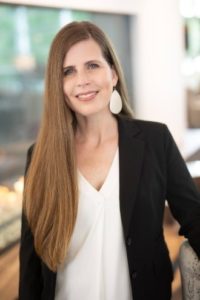
Dr. Michelle Scotton Franklin is an Assistant Professor of Psychiatry and Behavioral Health Sciences at Duke University School of Medicine and core faculty at the Duke-Margolis Center for Health Policy. She earned her Bachelor and Master of Science in Nursing from the University of North Carolina at Chapel Hill and achieved dual certification as a family nurse practitioner and family psychiatric-mental health nurse practitioner. She completed her PhD at the Duke School of Nursing followed by a postdoc at Duke-Margolis. Dr. Franklin was a 2014 UNC-CH Carolina Institute for Developmental Disabilities Leadership Education in Neurodevelopmental Disabilities (LEND) fellow, a 2018-2020 Duke-Margolis Scholar, and 2021-2022 Duke Center for Research to Advance Healthcare Equity Research Scholar Development Awardee. In addition to her program of research at Duke, she maintains a small clinical practice at the Carolina Institute for Developmental Disabilities. Dr. Franklin develops interventions and health policy solutions to address health disparities and facilitate improved health and well-being of people with I/DD and their families.
Drs. Maslow and Franklin have been funded by or continue to receive funding from the National Institutes of Health, the North Carolina Department of Health and Human Services, the Health Resources and Services Administration, Medicaid, the Substance Abuse and Mental Health Services Administration, the Patient-Centered Outcomes Research Institute, and Blue Cross and Blue Shield of NC Foundation.
Family Partners Needed!
The North Carolina Psychiatry Access Line (NCPAL), which is a collaboration between Duke and UNC provides consultation to pediatric primary care providers across the state. A new aspect of this project focuses on supporting families of youth with I/DD, and as a part of this project, they will be hiring part-time Family Partners: one in the Eastern part of the state, one in the Western part of the state, and two in the central region (one employed at UNC and one at Duke).
This will be a hybrid role where Family Partners provide support for families both at clinics in their region and over the phone for follow-up support.
They are looking for individuals who have lived experience providing care to a children/adolescent with I/DD, and who are interested in supporting patients with I/DD and their families as well as supporting and training staff in pediatric practices.
Ideal candidates would have an older child or young adult with I/DD, speak Spanish, and have strong computer and communication skills. If you or anyone you know who may be interested and would be a good fit, please apply or share the links below.
- Western Region: https://link.zixcentral.com/u/9426fd59/tEBPA4077hGnpn_uiHsoMg?u=https%3A%2F%2Func.peopleadmin.com%2Fpostings%2F262825
- Central Region: https://careers.duke.edu/job/Durham-Behavioral-Technician-Psychiatry-Child-Div-NC-PAL-NC-27710/1009249300/ (Duke)
- Eastern Region: https://link.zixcentral.com/u/869e6cac/oNtPA4077hG7Zn_uiHsoMg?u=https%3A%2F%2Func.peopleadmin.com%2Fpostings%2F262805
Register for the September Lunch & Learn Webinar!
Join us on the third Tuesday of every month at noon with new topics brought to you by thought leaders in the I/DD community.
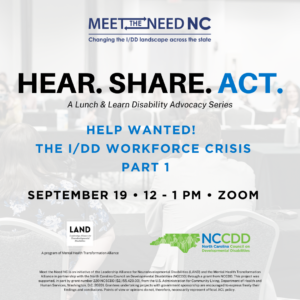 Throughout our series, Meet The Need NC intends to create a basic understanding of the unmet needs of those living with I/DD in North Carolina. Register for one or all of our Lunch & Learns: HEAR. SHARE. ACT: A Lunch & Learn Disability Advocacy Series.
Throughout our series, Meet The Need NC intends to create a basic understanding of the unmet needs of those living with I/DD in North Carolina. Register for one or all of our Lunch & Learns: HEAR. SHARE. ACT: A Lunch & Learn Disability Advocacy Series.
Our next Lunch & Learn will be on September 19 from 12pm – 1pm. The topic is about the Help Wanted! The I/DD Workforce Crisis – Part 1 featuring Dr. Pat Porter, PhD who will provide a historical overview of the I/DD workforce crisis and taking a deep dive into the current DSP workforce crisis which is key to meeting the service and support and service needs of the I/DD community and making community living a true choice. Porter is the former Chief of Developmental Disability Services and Senior Policy Advisor to the NC General Assembly. She also serves as an advisor to the NC Innovations DSP Workgroup.
Click Here to Register!
LENS: Lived Experience Network Speaks
LENS, which stands for Lived Experience Network Speaks, is a blog provided by Meet The Need NC from our LENS Advisory Group. LENS includes individuals with intellectual and/or developmental disabilities (I/DD) experience, including people with I/DD, families, and caregivers with separate groups for those who speak English or Spanish. We provide a space for them to share freely, but these opinions do not necessarily represent those of Meet The Need NC or all members of the LENS Advisory Group.
Take Action. Be Informed. And Keep Going!
This month’s guest blogger is Jessica Aguilar. This month’s blog is also available in Spanish.
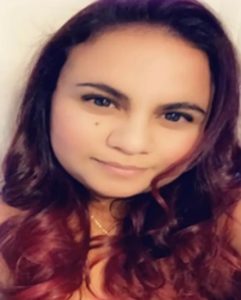
Little or nothing remains of the shy young Salvadoran woman who first came to the United States 13 years ago. Back then, I did not speak English and I did not suspect the challenges that awaited me. In 2012, my story was about to change radically. That year, I found out that I was going to be a mother. I was pregnant with twins. At that moment, a new chapter began in my life: motherhood and the fight for the well-being of my children.
I had a difficult birth. My pregnancy developed normally but at six months I was admitted to the hospital where I had to face a series of hard news. The doctors told me that both my life and that of my children were in danger. With the help of an English to Spanish interpreter, who was not always available at that time, I was able to understand the seriousness of the situation. But it was traumatic not being able to communicate because both my children and I were admitted to the hospital and when they called to request authorization, they did not always have an interpreter to explain it to me and I just had to trust and accept what the doctors decided was the best for them because I did not understand the language.
When my twins Luis and Christian were born premature with several complications my life took a drastic turn. I soon realized there were a lot of barriers making it harder to care for my twins. Language was one of the most difficult barriers, and how to navigate and obtain the appropriate medical care for them. I needed guidance on how and where to start the care for my twins. My limitations were plenty, the unsympathetic individual I crossed paths with was overwhelming and discouraging. It also made it so much harder to care and navigate the system for my twins. As a mother I felt frustrated, I felt like a failure mother to my children. Getting the necessary things done for them and their development seemed unreal. These limitations and barriers often made me wonder if my twins were going to have a good quality of life. Would they be able to thrive? Would I find the support I need? I’m very thankful to say, I found people and an agency who was able to provide me with the support, knowledge and guidance I needed to be able to care for my twins.
We are eligible for the North Carolina Innovations Waiver, which provides home- and community-based health services to people with intellectual and developmental disabilities through Medicaid. But for years now, we’ve been stuck on the waitlist for those services, along with more than 17,000 other families. Part of the problem is there’s a huge shortage of workforce professionals who provide these services. People don’t take those jobs because the pay is so low. Those who are doing this work are overburdened. For parents like me, it’s next to impossible to get services.
Right now, while we’re on the waitlist for the waiver, the only services I can access are applied behavioral analysis or ABA therapy and some very limited respite services. But it’s not consistent. My sons will go to ABA therapy for one month, and then it will be 2-3 weeks before the other therapist has another opening. Similar to other services, we will have an appointment for evaluation and then after that appointment, there will be a three-month wait for services.
My sons have autism – they thrive on routine. Without that consistency, they regress and struggle and we’re back to square one. And because we don’t have the waiver yet, they go without skill building therapy and other essential support entirely. There’s no way I could provide all the services my boys need and deserve.
It absolutely breaks my heart to see them struggle. They face challenges with daily tasks, and they have terrible anxiety and don’t want to leave the house. I am trying to help them communicate and advocate for themselves but it’s hard.
One of my boys told someone at school that he was thinking about suicide. That terrifies me to my core. I installed alarms on our doors and cameras throughout our house. I became a certified suicide prevention counselor. I am trying to help him and keep him safe. But we don’t have access to mental health support because there aren’t enough professionals.
Lack of access to the support families need is a crisis and it’s causing enormous harm to North Carolina’s kids, families, communities, and our economy. We are counting on our lawmakers to do the right thing and increase the number of NC Innovations Waiver slots and ensure workforce professionals are paid living wages. If we could access these services, it would make a huge difference. I just want to see my boys reach their full potential. And if they gained more independence, I could work more hours and I wouldn’t struggle so much to make ends meet every month. Health care is a human right. No one should fall through the cracks because of a coverage gap, suffer because they are waitlisted for services, or struggle to find the health professionals they need.
That’s why I’m collaborating with other mothers to create a parent support group ” Poder y Esperanza” which basically means Power and Hope. The parent group is the bridge parents need to connect to other parents, groups or agencies. We also look for the opportunity to become partners with different organizations like Meet The Need, Mamas con Poder/MomsRising to be able to encourage more families and their children in how to advocate for their needs and rights. This would become my personal mission, to help and support other families who share familiar experiences with me who found themselves through the same situation in which I found myself. Because I was able to obtain training, I was able to learn how to use my voice to advocate for my children and I continue to work on speaking English. I am a part of different working groups, a leader in my local LICC, different advisors groups with the Health Department and other organizations such as NC Child, NC CEAL, Mamás con Poder, LME-MCO in CFAC, among others. It’s important to me that the voices of Hispanic families and Hispanic communities are also included at round table conversations.
Through these groups, I try to help combat some of the biggest challenges facing Latino families with children with diagnosed like mine, including:
- The language barrier and the lack of information in Spanish.
- Lack of bilingual therapists.
- Frequent changes in care staff, interfering with children’s progress.
- People who judge people with conditions because of stigma.
- Racism and discrimination both inside and outside the Latino community.
Luis and Christian are now eleven years old. They are vibrant children with a desire to be a part of the community. They love soccer and being outdoors, and they dream of being YouTubers when they grow up. With the right support, Luis and Christian will reach their full potential and lead healthy and fulfilling lives. To Latino parents who receive a diagnosis of autism in their family, I recommend:
- Take action: ask questions and contact community support groups.
- Be informed: know the resources available and the rights of your children.
- Keep going: never stop fighting for the welfare of your children.
About the author: Jessica Aguilar is a Program Director for the Mental Health Transformation Alliance (MHTA) program and is the co-founder of Grupo Poder Y Esperanza Jessica Aguilar. She is the parent of twins with I/DD and mental health needs and a strong advocate with years of experience participating in the planning, development, and implementation of services for populations with special needs, particularly around access to services and supports for Latino families. She has earned strong trust from Latino families and serves as a voice for these families.
Versión en español del blog de LENS
Disparidad en la atención médica: Actúe. Infórmese. ¡Y sigue adelante!
Poco o nada queda de la tímida joven salvadoreña que llegó por primera vez a los Estados Unidos hace 13 años. En aquel entonces, no hablaba inglés y no sospechaba los desafíos que me esperaban. En 2012, mi historia estaba a punto de cambiar radicalmente. Ese año, me enteré de que iba a ser madre. Estaba embarazada de gemelos. En ese momento, comenzó un nuevo capítulo en mi vida: la maternidad y la lucha por el bienestar de mis hijos.
Tuve un parto difícil. Mi embarazo se desarrolló normalmente, pero a los seis meses ingresé en el hospital donde tuve que enfrentar una serie de noticias duras. Los médicos me dijeron que tanto mi vida como la de mis hijos estaban en peligro. Con la ayuda de un intérprete de inglés a español, que no siempre estaba disponible en ese momento, pude comprender la gravedad de la situación. Pero fue traumático no poder comunicarme porque tanto mis hijos como yo estábamos ingresados en el hospital y cuando llamaban para pedir autorización, no siempre tenían un intérprete que me lo explicara y solo tenía que confiar y aceptar lo que los médicos decidian que era lo mejor para ellos porque no entendía el idioma.
Cuando mis gemelos Luis y Christian nacieron prematuros con varias complicaciones, mi vida dio un giro drástico. Pronto me di cuenta de que había muchas barreras que dificultaban el cuidado de mis gemelos. El idioma era una de las barreras más difíciles, y cómo navegar y obtener la atención médica adecuada para ellos. Necesitaba orientación sobre cómo y dónde comenzar el cuidado de mis gemelos. Mis limitaciones eran muchas, las personas antipáticas con las que me cruzaba era abrumador y desalentador. También hizo que fuera mucho más difícil cuidar y navegar por el sistema para mis gemelos. Como madre me sentía frustrada, me sentía como una madre fracasada para mis hijos. Hacer las cosas necesarias para ellos y su desarrollo parecía irreal. Estas limitaciones y barreras a menudo me hacían preguntarme si mis gemelos iban a tener una buena calidad de vida. ¿Serían capaces de prosperar? ¿Encontraría el apoyo que necesito? Estoy muy agradecida de decir que encontré personas y una agencia que pudo brindarme el apoyo, el conocimiento y la orientación que necesitaba para poder cuidar a mis gemelos.
Somos elegibles para la Waiver innovation de Carolina del Norte, que brinda servicios de salud basados en el hogar y la comunidad a personas con discapacidades intelectuales y del desarrollo a través de Medicaid. Pero durante años, hemos estado atrapados en la lista de espera para esos servicios, junto con más de 17,000 otras familias. Parte del problema es que hay una gran escasez de mano de obra. profesionales que prestan estos servicios. La gente no acepta esos trabajos porque la paga es muy baja. Aquellos que están haciendo este trabajo están sobrecargados. Para los padres como yo, es casi imposible obtener servicios.
En este momento, mientras estamos en la lista de espera para la exención, los únicos servicios a los que puedo acceder son el análisis conductual aplicado o la terapia ABA y algunos servicios de relevo muy limitados. Pero no es consistente. Mis hijos iban a la terapia ABA durante un mes, y luego pasaban 2-3 semanas antes de que el otro terapeuta tenga otra vacante. Al igual que otros servicios, teníamos una cita para la evaluación y luego, después de esa cita, habrá una espera de tres meses para los servicios.
Mis hijos tienen autismo, la rutina es como aprenden. Sin esa consistencia, retroceden y es una lucha y volvemos al punto de partida. Y debido a que aún no tenemos el Waiver, no reciben terapia de desarrollo de habilidades y otro apoyo esencial por completo. No hay manera de que pueda proporcionar todos los servicios que mis hijos necesitan y merecen.
Me rompe absolutamente el corazón verlos luchar. Se enfrentan a desafíos con las tareas diarias, y tienen una ansiedad terrible y no quieren salir de casa. Estoy tratando de ayudarlos a comunicarse y abogar por sí mismos, pero es difícil.
Uno de mis hijos le dijo a alguien en la escuela que estaba pensando en suicidarse. Eso me aterroriza hasta la médula. Instalé alarmas en nuestras puertas y cámaras en toda nuestra casa. Me convertí en consejera certificada para la prevención del suicidio. Estoy tratando de ayudarlo y mantenerlo a salvo. Pero no tenemos acceso a apoyo de salud mental porque no hay suficientes profesionales.
La falta de acceso al apoyo que necesitan las familias es una crisis y está causando un daño enorme a los niños, las familias, las comunidades y nuestra economía de Carolina del Norte. Contamos con que nuestros legisladores hagan lo correcto y aumenten el número de espacios de innovation waiver y garanticen que los profesionales de la fuerza laboral reciban salarios dignos. Si pudiéramos acceder a estos servicios, marcaría una gran diferencia. Solo quiero ver a mis hijos alcanzar su máximo potencial. Y que obtengan más independencia, podría trabajar más horas y no lucharía tanto para llegar a fin de mes cada mes. La atención médica es un derecho humano. Nadie debe pasar desapercibido por una cobertura gap, o sufrir porque están en lista de espera para recibir servicios o luchando por encontrar los profesionales de la salud que necesitan.
Es por eso que estoy colaborando con otras madres para crear un grupo de apoyo para padres “Poder y Esperanza”. El grupo de padres es el puente que los padres necesitan para conectarse con otros padres, grupos o agencias. También buscamos la oportunidad de asociarnos con diferentes organizaciones como Meet The Need, Mamas con Poder/MomsRising para poder alentar a más familias y sus hijos a abogar por sus necesidades y derechos. Esta se ha convertido en mi misión personal, ayudar y apoyar a otras familias que comparten experiencias familiares conmigo que se encontraron a través de la misma situación en la que me encontré. Debido a que pude obtener capacitación, pude aprender a usar mi voz para abogar por mis hijos y continúo trabajando para hablar inglés. Soy parte de diferentes grupos de trabajo, líder en mi LICC local, diferentes grupos de asesores con el Departamento de Salud y otras organizaciones como NC Child, NC CEAL, Mamás con Poder, LME-MCO en CFAC, entre otras. Es importante para mí que las voces de las familias hispanas y las comunidades hispanas también se incluyan en las conversaciones de mesa redonda.
A través de estos grupos, trato de ayudar a combatir algunos de los mayores desafíos que enfrentan las familias latinas con niños diagnosticados como los míos, incluyendo:
- La barrera del idioma y la falta de información en español.
- Falta de terapeutas bilingües.
- Cambios frecuentes en el personal de atención, lo que interfiere con el progreso de los niños.
- Personas que juzgan a las personas con afecciones debido al estigma.
- Racismo y discriminación tanto dentro como fuera de la comunidad latina.
Luis y Christian tienen ahora once años. Son niños vibrantes con el deseo de ser parte de la comunidad. Les encanta el fútbol y estar al aire libre, y sueñan con ser Youtuberos cuando crezcan. Con el apoyo adecuado, Luis y Christian alcanzarán su máximo potencial y llevarán vidas saludables y satisfactorias. A los padres latinos que reciben un diagnóstico de autismo en su familia, les recomiendo:
- Actúe: haga preguntas y póngase en contacto con grupos de apoyo comunitarios.
- Mantente informado: conoce los recursos disponibles y los derechos de tus hijos.
- Sigue adelante: nunca dejes de luchar por el bienestar de tus hijos.
Sobre el autor: Jessica Aguilar es la Directora del Programa de la Alianza para la Transformación de la Salud Mental (MHTA) y cofundadora de Grupo Poder Y Esperanza Jessica Aguilar. Ella es madre de gemelos con I/DD y necesidades de salud mental y una firme defensora con años de experiencia participando en la planificación, desarrollo e implementación de servicios para poblaciones con necesidades especiales, particularmente en torno al acceso a servicios y apoyos para familias latinas. Ella se ha ganado la confianza de las familias latinas y sirve como una voz para estas familias.
Policy Updates
Sarah Pfau, JD, MPH,
Senior Consultant
CCR Consulting
Policy updates as of August 28, 2023
Medicaid Expansion Update
Last month we shared this NC DHHS press release regarding plans to implement Medicaid Expansion by October 1, with Centers for Medicare and Medicaid Services approval under the contingency that the NCGA enact a State budget by September 1: State Takes Action To Start Medicaid Expansion Oct. 1; Launch depends on General Assembly acting by Sept. 1 | NCDHHS. Recent interviews with North Carolina (NCGA) House and Senate leaders have yielded reporting that a vote on the State budget will not occur until at least mid-September. On August 28, NC DHHS released an updated press release and announced that due to the delay in the State budget, October 1 is no longer an option for a launch date. A new launch date will not be determined until the NCGA provides final authority.
In relation to Medicaid Expansion, the Division of Health Benefits, NC DHHS, has submitted three NC Medicaid State Plan Amendments to the federal Centers for Medicare and Medicaid Services (CMS) in preparation for Medicaid Expansion implementation. The State Plan Amendments pertain to eligibility, benefits, and the 90% Federal match that the State will receive for each dollar spent on the expansion services:
- SPA 23-0028 Proposed Amendment to CMS (Medicaid Expansion FMAP)
- SPA 23-0029 Proposed Amendment to CMS (Medicaid Expansion Alternative Benefit Plan (ABP)
- SPA 23-0030 Proposed Amendment to CMS (Medicaid Expansion Eligibility)
NC Medicaid and DMH/DD/SAS Clinical Coverage Policy Updates
Proposed State-Funded Service Definition Policies: Send comments to: DMHIDDContact@dhhs.nc.gov
State-Funded Community Living and Support: Comment period ends 9/15
Two 1915(i) State Plan Option policies have been posted for public notice and comment from 7/14 – 8/28. There are no new NC Medicaid clinical coverage policy postings at this time. Submit comments to medicaid.public.comment@dhhs.nc.gov.
- 8H-1: NC Medicaid: Supported Employment for IDD and TBI, 8H-1. (ncdhhs.gov)
- 8H-5: NC Medicaid: Community Living and Supports, 8H-5. (ncdhhs.gov)
Proposed LME/MCO Consolidation
On August 10, 2023 Sandhills LME-MCO published a press release announcing a proposed consolidation with Eastpointe LME-MCO. The consolidation is pending NC DHHS approval, and the review of all related documentation is in process at this time.
Samantha R. et al. v. North Carolina Department of Health and Human Services Updates
In November of 2022, in relation to a 2017 Disability Rights North Carolina lawsuit, Samantha R., et al. v North Carolina and the NC Department of Health and Human Services, an NC Superior Court judge filed an Order requiring NC DHHS to:
1) Divert and transition individuals from institutionalization;
2) Increase access to Home- and Community-based Services via reductions in the Registry of Unmet Needs waiting list for the North Carolina 1915(c) Innovations Waiver;
3) Adress the Direct Support Professional workforce deficit; and
4) Implement quarterly progress reporting to the Court.
- In February of 2023, the same judge granted an NC DHHS motion for a stay of the Order while the lawsuit appeal is pending in the NC Court of Appeals.
- In May of 2023, Disability Rights North Carolina filed a Motion to Modify the November 2022 Order and remove a 2028 cessation date for new, long-term admissions to ICF-IID facilities. According to DRNC: “The Motion asks the judge to change a provision of his November 2022 Order so that it does not apply to ICFs (except for the state-operated Developmental Centers). Specifically, the Order provides that new long-term admissions to certain settings would end in 2028, while allowing short-term admissions and respite. We filed the Motion because of community concerns that alternative community-based services would not be available in time for those who would prefer them, and that those who want to remain may lose the option to stay if their ICF closes, either because of the lack of long-term admissions or in anticipation of that prospect.”
- In early August, the Superior Court judge held a hearing and denied the Motion to Modify.
- A mediation in the Court of Appeals is scheduled for August 29th.
In recent months, DRNC has been meeting with stakeholders including beneficiaries, guardians, and LME/MCOs to identify ways that people with I/DD living in ICFs can live in the highest quality, most integrated way possible. Based on the focus group sessions, DRNC recommended the formation of a group for family members of people living in ICF settings. This group will not be affiliated with DRNC. Parent Carol Conway has agreed to organize and convene the group. If you are – or may be – interested, please reach out to Carol at carol.ann.conway@gmail.com. The group will decide for itself on a scope and direction.
Extension of Temporary/Interim Rates Through Sept. 30, 2023
Applies to rates for Skilled Nursing Facilities (SNF), Personal Care Services, and Community Alternatives Programs (CAP/C, CAP/CD-formerly CAP/Choice, and CAP/DA). Read the SPECIAL BULLETIN COVID-19 #269: Extension of Temporary/Interim Rates Through Sept. 30, 2023 | NC Medicaid.
Fact Sheet: North Carolina’s Transition of 1915(b)(3) Benefits to 1915(i)
The Medicaid Provider Playbook Fact Sheet for the 1915(i) transition from (b)(3) services was updated in August. Transition dates for individuals with open (b)(3) authorizations who will eventually enroll in Tailored Plans have changed to reflect the indefinite Tailored Plan go-live delay beyond 10/1. Read the Fact Sheet.
NC Commission for MHDDSUS: DMHDDSUS Update
On August 24, Kelly Crosbie presented to the Commission on DMH/DD/SUS. The Commission reviews and approves proposed new administrative rulemaking, rulemaking amendments, and rule repeals for DMH. You can download the slide presentation, which covers:
- Medicaid Expansion
- 2023-2024 Behavioral Health Budget priorities
- 2023 legislation requiring additional DMH/DD/SUS Rulemaking
- Olmstead updates
- TCLI updates
- DMH strategic planning initiatives
Legislative Updates
Codified as Session Law 2023-115: An Act To Retain Adult Developmental and Vocational Programs and Community Rehabilitation Programs.
SB308: Guardianship Rights/Modify Firearms Retrieval
As of 8/21, this bill that the House amended and passed recently has been referred to the Senate Rules and Operations Committee.
An Act to update the Guardianship Accounting Statute to allow for certain timing elections and extensions, to amend the general statutes to prevent the abuse or misuse of authority granted to abuse or misuse of authority granted to and agent in a power of attorney, and to promote the rights and independence of persons subject to the guardianship process and to improve judicial oversight and accountability for guardians of the person, as recommended by the North Carolina Bar Association, to modify and clarify provisions related to the retrieval of firearms, ammunition, and permits surrendered pursuant to an ex parte, emergency, or permanent domestic violence protective order, and to protect minor victims of and witnesses to crime.
SB308 bill summary. The bill would:
- Require a general guardian or guardian of the estate to elect a fiscal year-end date upon the filing of the initial annual account, or if made in a subsequent year, with the clerk’s permission, and to file each annual account within 30 days after the elected fiscal year-end unless the time for filing has been extended by the clerk.
- Provide that a petition for judicial relief challenging the authority of an agent holding a power of attorney or the manner in which that authority has been exercised can be dismissed only upon motion filed by the principal acting individually, and not through the agent.
- Require respondents in guardianship proceedings to be informed of their rights before and after an adjudication of incompetency.
- Provide that a respondent is not incompetent who is able, by means of a less restrictive alternative, to sufficiently manage the respondent’s affairs and communicate important decisions concerning the respondent’s person, family, and property.
- Provide that examples of less restrictive alternatives include supported decision making, appropriate and available technological assistance, appointment of a representative payee, and appointment of an agent by the respondent, including appointment of a health care or financial power of attorney.
- Require a petition to state what less-restrictive alternatives were considered before seeking adjudication and why those alternatives are insufficient to meet the respondent’s needs.
- Strengthen the clerks’ oversight of guardians of the person.
- RE: the new firearms-related amendment: The bill would also modify and clarify provisions related to the retrieval of firearms, ammunition, and permits surrendered pursuant to an ex parte, emergency, or permanent domestic violence protective order and provide that 911 calls made by minors are not public record.
State and National Policy News Articles of Interest
- Lawmakers Call For Incentives To Broaden Access To ABLE Accounts – Disability Scoop
- Nearly 99% Of Adults With Autism Have No Employment Services – Disability Scoop
- HHS Launches Search for Senior Manager for Olmstead and Community Integration | ANCOR
- Seeking Solutions: Helping NC students with unique needs | wcnc.com
I/DD Legislative Priorities for North Carolina Organizations
Many organizations in North Carolina decide to focus on advocating by educating and informing on issues. Click here for a list of those organizations and the resources they offer.
Did you know? Information you can use!
Highlighted Resources and Other Updates
- Health Equality, Health Equity & Health Barriers: An easy read information sheet written by Florida Health.
- Advancing Health Equity for People with Intellectual and Developmental Disabilities: An article published by Health Affairs.
- Health equity: Meaning, promotion, and training: An article from Medical News Today.
- The Native American Disability Law Center: A private nonprofit organization that advocates for the legal rights of Native Americans with disabilities.
- Medicaid Recertification – Important Update: With the Public Health Emergency unwinding, Medicaid Recertification letters are being sent out around the country, including in North Carolina. Without Medicaid Expansion in our state, many are at risk for being disenrolled from Medicaid. Redeterminations began on 4/1/2023. See the NCDHHS Dashboard on Medicaid unwinding. See also a consumer Fact Sheet on How NC Medicaid Eligibility Recertification Works.
- DMH/DD/SAS Frequently Used Acronyms: Individuals and their family members hear and read many acronyms that are used by professionals in the disability community. This resource lists all the commonly used acronyms and what they mean.
Visit our Statewide Resources web page for more resources!
Event Announcement: I/DD Summit for Families
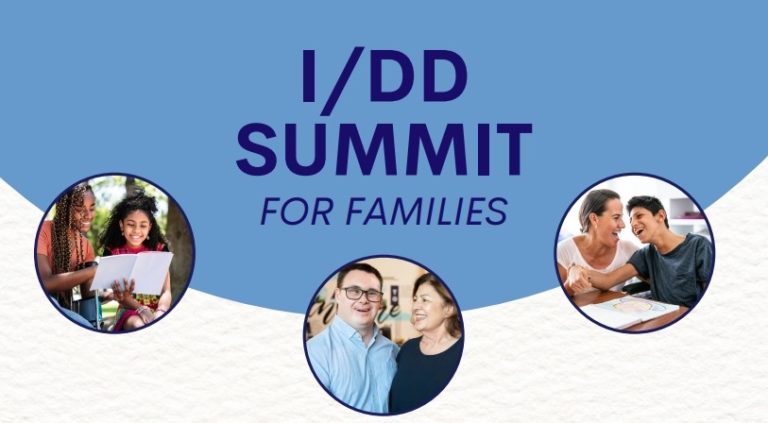
- Download the Event Flyer
- Click here to register
- Questions? Contact Carol Conway at carol.ann.conway@gmail.com.
Ask your legislators to take a survey by September 15!
- Find your legislators: Representation – North Carolina General Assembly (ncleg.gov).
- Share the survey link with them: https://duke.qualtrics.com/jfe/form/SV_6hrPgffjmnUCTsy. (Note: This is a special link to be used ONLY by legislators or their legislative assistants).
- Ask them to fill out the survey by September 15.
Stay in touch with us!
- Register for our email list: Sign up here
- Follow us on social: Facebook & Instagram
- View our webinar recordings: Subscribe to our YouTube channel
- Listen to our podcast: The Waiting Room hosted by Kenneth Kelty
- Read previous newsletters: Meet The Need eNews


